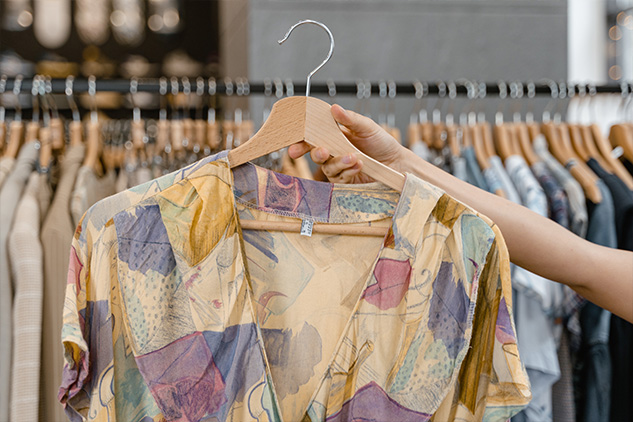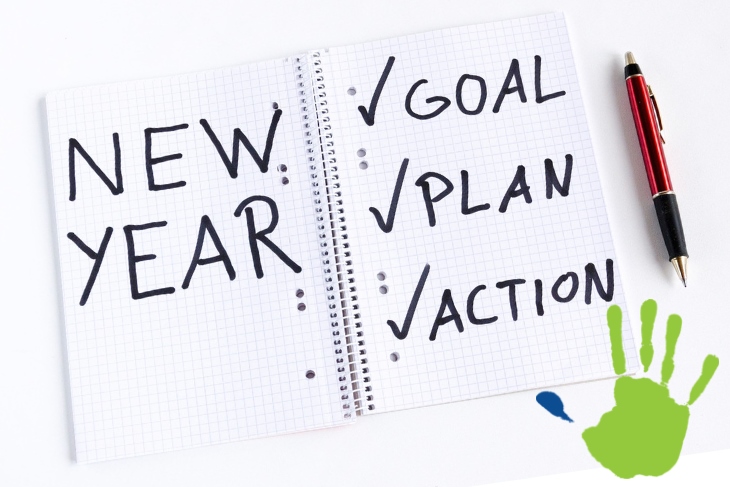
From trash to treasure: give where you live
If you’ve ever tried to declutter your place, you may have found yourself a little unsure about where to find the best homes for your pre-loved items.
Posted on: July 10, 2020
Disclaimer: This blog reflects information accurate at the time of its original publication. It has been preserved for archival purposes and may not reflect the most up-to-date details or developments.
Make 2019 the year that you break up with waste. Here are 12 of our favourite (and easy) ways to reduce your personal waste-footprint.

Banish takeaway coffee cups and plastic water bottles from your life.
If you like drinking with a straw now’s the time to invest in a reusable one, otherwise make a point of ordering drinks with a request to hold back the straw.
Buy fruit and veg loose or invest in a set of reusable produce bags. And, while you’re at it, leave those packaged fruit and veg on the shelf!
Quit junk mail. Unsubscribe from all those advertising emails clogging your inbox. Just because it’s discounted doesn’t mean you need it.
Understand the scale of the problem here in WA, and on a global front.
If you are out and about and need to pick up a drink consider choosing cans over plastic bottle. Think about it – plastic lids can’t be recycled and neither can the plastic stickers, whereas all elements on a can can!
A big unwieldly compost bin is no longer your only option for keeping food scraps out of your household bin. Worm farms and bokashi bins are great, and often more compact, alternatives. You can also get in touch with your local council to encourage them to get on board with FOGO (Food Organics and Garden Organics) recycling. It’s already making a big difference in the WA towns and suburbs that have introduced it.
It’s as easy as it sounds. Make January the month that you clear out your fridge and pantry. Use up the items you have already before you buy more – and make a note of the items that have been languishing at the back for too long and avoid buying them in the future.
Hopefully you’re already full bottle on what you should be putting in your yellow-topped recycling bin, but are you also recycling (rather than throwing out) those trickier items like Nespresso pods, batteries, printer cartridges, old towels etc? We’ve put together some tips on how you can recycle better.
For the next 12 months why not commit to a new approach for present buying. Avoid creating new waste by gifting friends and family experiences and access. Think vouchers for a memorable day out, a subscription to an e-book service or even a nice meal.
This one can be applied in a whole variety of places but can be particularly effective when grocery shopping (hello less food waste!) and shopping for clothes (perhaps 2019 might even be the year you embrace the capsule wardrobe trend).
Lightweight plastic bags are no more, but why not commit to avoiding ALL bags – heavy weight plastic and paper included? Or, if you get caught short and do need to take one, make sure you use it for all of the items you purchase that day. There’s no need to accept extra bags just to become a walking advert for a store!
And here are some bonus tips from the 2018 Western Australian Infinity Award champions:
Want to keep waste front of mind this year, why not follow us on Facebook or Instagram for year-round inspiration?

If you’ve ever tried to declutter your place, you may have found yourself a little unsure about where to find the best homes for your pre-loved items.

Convenience or environmental disaster? Single-use plastics are ever-present in everyday life. Find out what you can do to reduce them.

Make 2019 the year that you break up with waste. Here are 12 of our favourite (and easy) ways to reduce your personal waste-footprint.